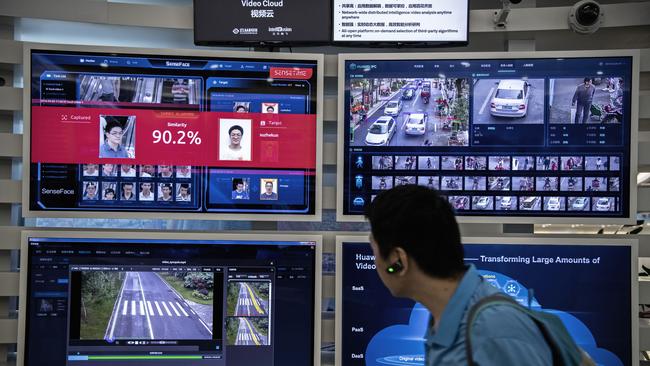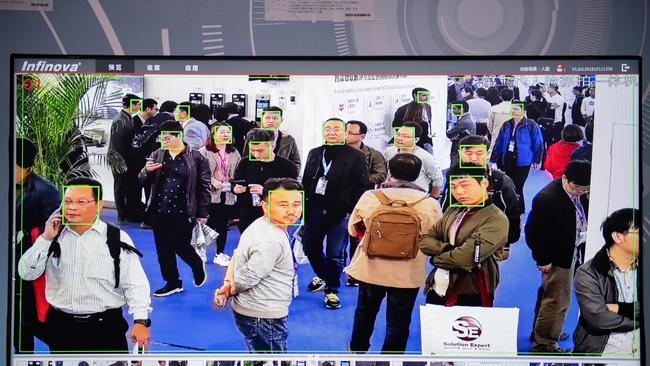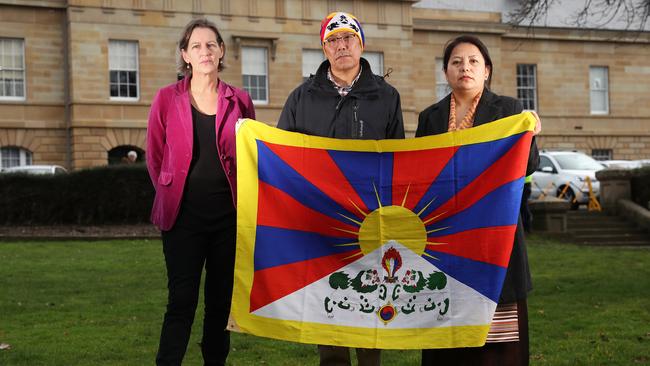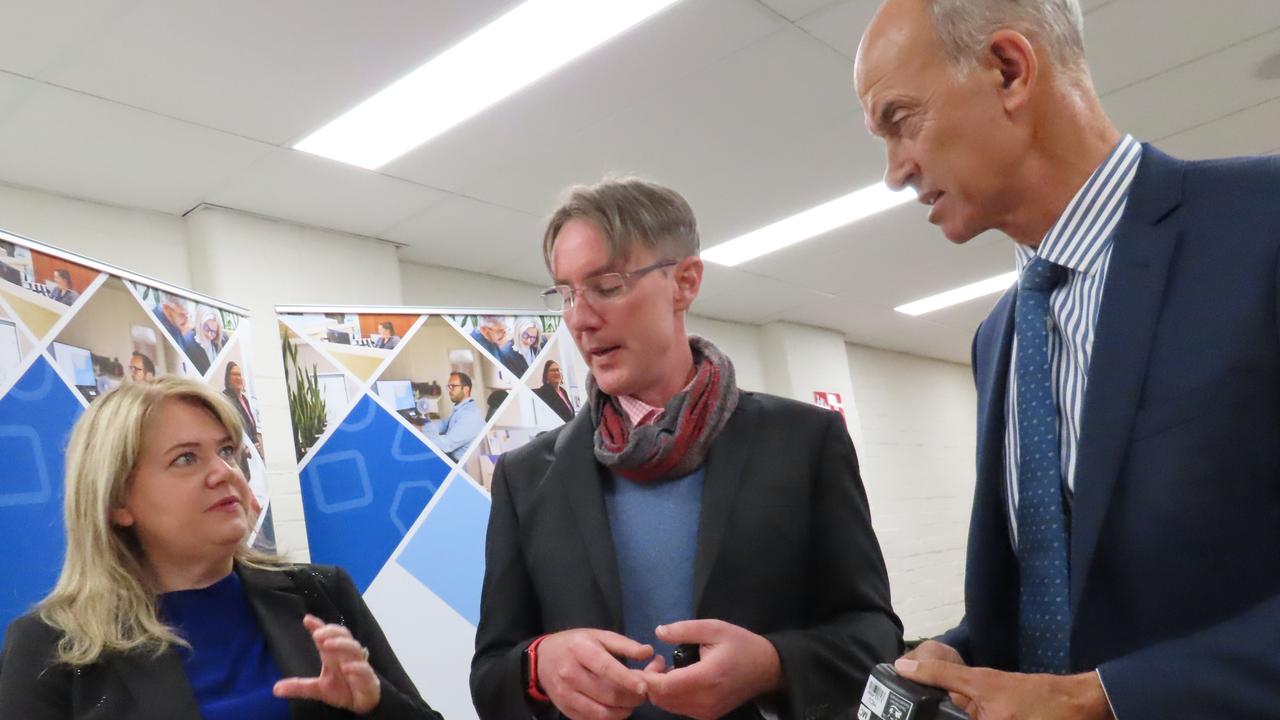Concern over Chinese ‘spy’ cameras near parliament
Concerns have been raised about plans to put more security cameras made by a Chinese government-owned company near parliament. But the company says they are committed to privacy. LATEST >>

Politics
Don't miss out on the headlines from Politics. Followed categories will be added to My News.
- TikTok won’t be banned in Australia despite security concerns
- Charles Wooley: Chinese President Xi Jinping fails the pub test
A Chinese firm banned from the US for its role in creating an all-seeing surveillance system designed to crush internal dissent could soon be helping monitor protests on Hobart’s parliament lawns.
Hikvision has been black-listed by the United States government for its key role in building China’s 24-7 techno-surveillance network to perpetrate human rights abuses against minority Uighur Muslims and Tibetans.
The Chinese government-owned company’s cameras watch over Tasmanian MPs in their parliamentary offices, and will soon be installed to surveil public events outside the building as well.

Greens leader Cassy O’Connor has written to the presiding officers of both houses of parliament to express her concerns.
The party has already had a Hikvision security camera removed from their offices.
“Hikvision is one of a number of Chinese-owned communications technology giants that have been identified as having numerous security flaws, flaws that security experts allege are deliberate,” Ms O’Connor said.
“It is untenable that Hikvision cameras will be installed on parliament’s lawns to surveil democratic activity so essential to our way of life.
“It would be reckless to install more Hikvision cameras, particularly on the lawns where, for example, each year members of Tasmania’s Tibetan Community gather to hold their vigils.”
In a statement to the Mercury, a Hikvision corporate spokesperson rejected Ms O’Connor’s accusations that the company’s products are used for unauthorised collection of information.
The US government has banned the importation of Hikvision cameras into that country, the Australian Defence Force has banned them on their bases and the South Australian Health Department has removed the company’s cameras from its buildings

The use of equipment made by Chinese companies in sensitive roles is sometimes considered problematic because of Article 7 of China’s National Intelligence Law which requires, “any organisation or citizen shall support, assist, and co-operate with state intelligence work”.
According to the Australian Strategic Policy Institute, Hikvision’s chairman Chen Zongnian told employees that “every party member must consciously accept the party’s leadership, and powerfully strengthen the party’s leadership and the party’s energy, abiding by party discipline and national law”.
In a response to Ms O’Connor’s concerns, Speaker of the House of Assembly Sue Hickey and Legislative Council President Craig Farrell said the cameras had been in place for a decade and said the system was not accessible to outsiders.

“The Parliamentary Information Technology Service undertake routine security checks and upgrades on all of the parliament’s system including the CCTV system to make sure there are no security risks that would result in a breach of any data being accessible to outside organisations or persons.
“Accordingly the security risk is considered extremely low.”
Sonam Thakchoe from the Tasmanian Tibetan community installation of Hikvision cameras at parliament lawns carried more than just symbolic significance to Tibetan activists who frequently hold vigils there.
“This is a very worrying development indeed,” he said.
“We are very disappointed with the Tasmanian government decision to import Hikvision cameras.
“The Tasmanians government must have known that Hikvision cameras are playing a major part in China's ongoing oppression of the people of ethnic minorities.
“Far from defending and safeguarding the individual rights and freedom of Tasmanian citizens, the Tasmanian government is now importing Chinese surveillance technology.
“We are worried that the data these cameras will collect could end up in the hands of Chinese authorities which will eventually use them against our families in Tibet.”
Hikvision’s corporate spokesperson said the company had a “strong track record and commitment to security and privacy”.
“As the security industry’s global leader, Hikvision takes cybersecurity very seriously as a company and follows laws and regulations in the markets we operate,” the spokesperson said. “Since 2001 when the company was established, Hikvision’s products have safeguarded people, communities, property and assets around the world, including in Australia.
“The company has its products regularly tested for vulnerabilities and has received certifications for their cybersecurity standards, including the U.S. National Institute of Standards and Technology FIPS 140-2.
“Separately, Hikvision respects human rights and takes our responsibility to protect people seriously.”



